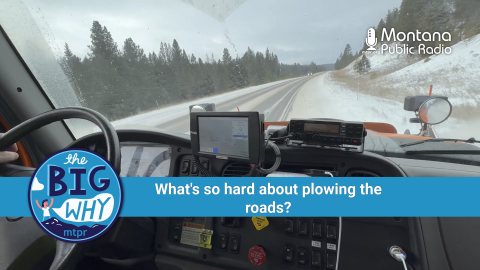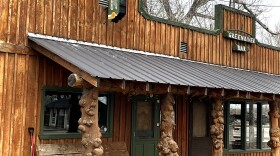-
The local BOCES offers everything from pottery classes to college credits to childcare. But the majority of their budget comes from the natural gas industry. The group says they may have to scale back if revenues keep declining.
-
When it comes to winter driving, everyone wants their route clear and dry, and they want it done quickly. Why don't the plows come sooner or more often? Why don't they drop more salt or deicer? Why not get more drivers on the road? Tag along as a Montana snowplow driver prepares for a big winter storm and find out more about the logistical, environmental and technical challenges that come with keeping the roads clear of snow.
-
As much of the Mountain West faces another dry winter, researchers are turning their attention underground to the water many communities rely on but rarely see.
-
Funding and structural changes led to their end, but those involved with Wyoming’s sage grouse efforts say local input will still be sought.
-
Advocates worry this delay could signal a future attempt from the Trump administration to take grizzlies off the endangered species list.
-
The EPA’s rejection of Colorado’s regional haze plan and orders from the Trump administration to keep coal plants online in the state have advocates worried about damage to protected areas.
-
University of Utah researcher sees increasing value in high-elevation, north-facing ski resorts.
-
Helicopter serves the region, especially Grand Teton National Park.
-
The judge did not seem swayed by Cody Roberts’ team’s argument to dismiss the case, tentatively setting jury selection to begin on Feb. 12.
-
As large solar projects become more common across the Mountain West, questions remain about their environmental footprint, especially in fragile desert ecosystems. New research from Nevada suggests that with careful planning, renewable energy development and rare native plants may be able to coexist.
-
The U.S. Forest Service announced revisions to its oil and gas leasing rules on Tuesday that the agency promises “modernizes and streamlines” the permitting process to drill for fossil fuels in the nation’s forests and grasslands.
-
Cold temperatures have settled over much of the Mountain West this winter, but precipitation has been harder to come by, leaving large parts of the region unusually dry for late January.

















